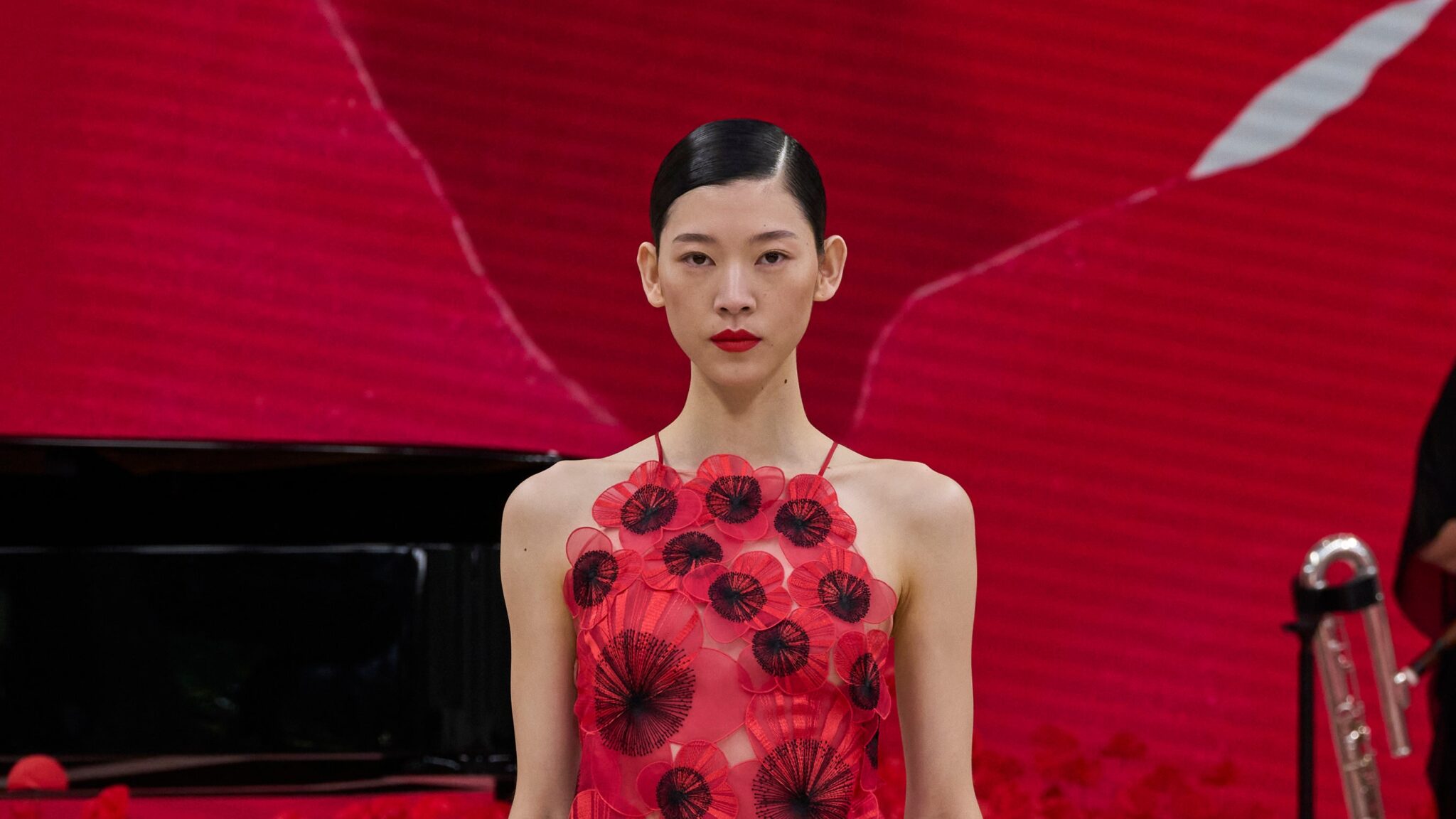An Akris show is often an art history lesson. This season, Albert Kriemler was excited to share one of his own recent discoveries: Felice (Lizzi) Rix-Ueno, a remarkable artist from the Wiener Werkstätte period who is too little known today for the usual reason: her gender. One hundred years later, she finally gets what she deserves. An exhibition of her work, “Stars, Feathers, Tassels,” featuring drawings she made for textiles, wallpaper and other household items, opens Nov. 22 at the Museum of Applied Arts in Vienna (Akris is a sponsor).
Rix-Ueno’s oeuvre distinguishes itself from that of her male contemporaries; where they believed in ‘reduction and rationality’ and sharp angles, she produced pieces that brought ‘vibrancy, color and curves’ to the fore. “Lizzi,” Kriemler wrote in his press releases, “was convinced that only inner creativity will lead to one’s identity, and truly believed in the expressive possibilities of craft. I really agree with her idea of craft as momentum.”
He used many of her pieces as inspiration. Her poppy sketch was transformed into the delicate Saint Gallen embroidery that appeared on the cocktail dress that opened the show. Her design for an Easter candy box adorned the front of a white shirt dress sewn from two rectangles. And an abstract watercolor and pencil rendering of birds enlivened a simple cut, button-down and matching cargo pants. Akris customers collect these pieces as if they were art objects.
Despite the prints and embroideries, this was a collection of clean, minimal lines – and extremely lightweight materials too. Kriemler referred to the 80-degree heat, more than 10 degrees warmer than the usual high temperatures in Paris in October, and pointed to the silk organza he developed for smart suits and a loose black trench coat. The evening pieces with floor-length platinum silk fringes were another nod to Rix-Ueno. “For creativity it is freedom,” he said.





